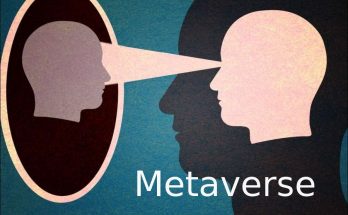The Metaverse or “other world” is the evolution of the internet into a virtual world where people interact with each other with their digital identities and avatars. In a way, it is a preparation for science fiction dreams to come true. According to Zuckerberg, “Metaverse is social technology expanding its boundaries to infinity.”
There have been many studies that give clues about how excessive technology use will affect mental and spiritual health. Phil Reed’s compilation gives an idea about what will happen in this regard1. The most striking consequence of engaging in virtual interaction will be that it poses a great threat to people with psychotic tendencies prone to hallucinations and delusions.
The negative consequences are not limited to this. It has been shown that overuse of digital technology causes a 6 percent increase in somatic symptoms, a 4 percent increase in depression symptoms, and a five percent increase in paranoid ideas and serious mental health problems2. Facebook’s prediction that its virtual reality universe will be used by approximately 1.9 billion people daily suggests that its impact on the psychotic population in society will be devastating. Facebook’s Reality Labs Division intensively researches the emotions that can be created by interacting with others in a game-like manner. Facebook is making great efforts to ensure that the results of this laboratory do not turn into anti-digital propaganda and that people’s freedom of choice is not taken away.
Such virtual interactions are used in the treatment of delusions and hallucinations in controlled clinical environments3, but since the commercial hyper-universe is not a controlled clinical framework, the created virtual environment will make it easier for people to escape from the responsibilities imposed on them by daily life.
There is a close link between strange experiences, impulsive disobedience and mental disorganization (inability to think logically) and the excessive use of digital technologies. Due to the difficulty of researching schizophrenic individuals, studies conducted with individuals with sub-clinical (pre-clinical/not yet fully adjusted) schizoid tendencies provide insight into the potential extent of the future danger in this regard.
When 100 people aged 20-30 with problematic internet use (PIU) were examined, depression, anxiety and strong schizoid tendencies were detected4. Additionally, it has long been known that there is a close relationship between PIU and depression and anxiety. Another study revealed the relationship between Facebook use and PIH5.
Next Page – Metaverse: Is it cause or effect?
Hits: 38



